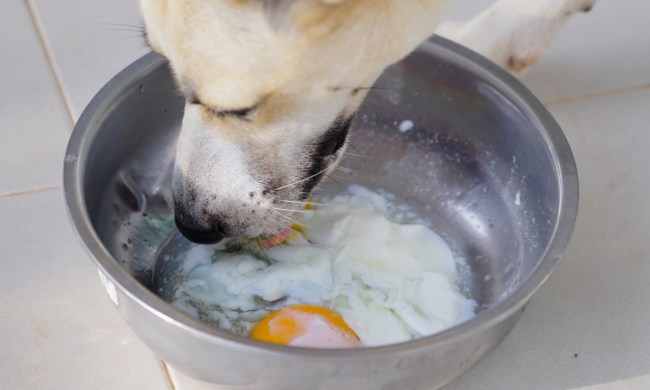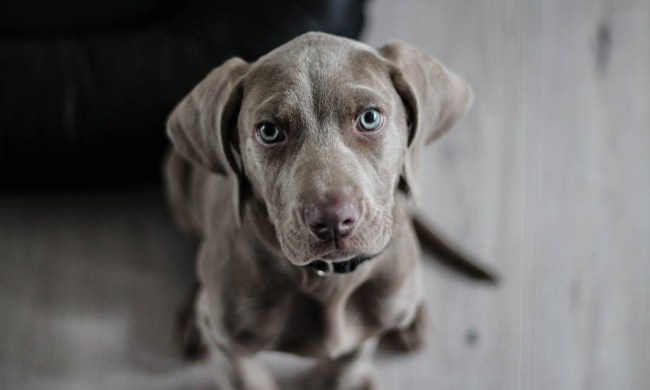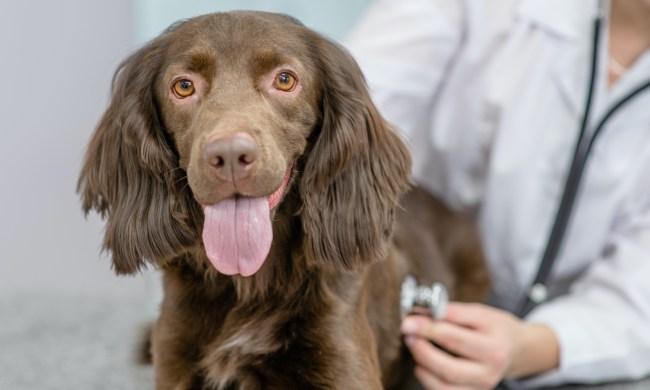Remember your last bout of hiccups? Whether it was slightly irritating or absolutely awful, you probably had a handful of home remedies at the ready to make them stop as quickly as they started. Even though these tricks won’t work when your dog has hiccups—each for its own good reason—there are still many things you can try to relieve this annoying condition.
Puppy hiccups can range from adorable to scary-looking, though they are generally not a cause for concern. Still, we’ll make sure you have all the knowledge you need to keep your best buddy safe before, during, and after their hiccup episode. You’ll learn about the conditions hiccups can be mistaken for, a few home remedies to help your pup breathe, and whether or not you need to worry.
Hiccups in dogs
Just like people, dogs can get hiccups. This happens when the diaphragm—the muscle that pushes and pulls your lungs to help you breathe—spasms and contracts. You may hear a small sound as the vocal cords close, too. That’s the “hic” sound we associate with this respiratory phenomenon.
When it comes to canines, hiccups can be more common in puppies than older dogs. One theory for this has to do with the possible purpose of hiccups, which is still mostly unknown to scientists. The American Kennel Club explains that many species—all mammals—have exhibited fetal hiccups, which could be the body’s way of testing out the lungs before birth.
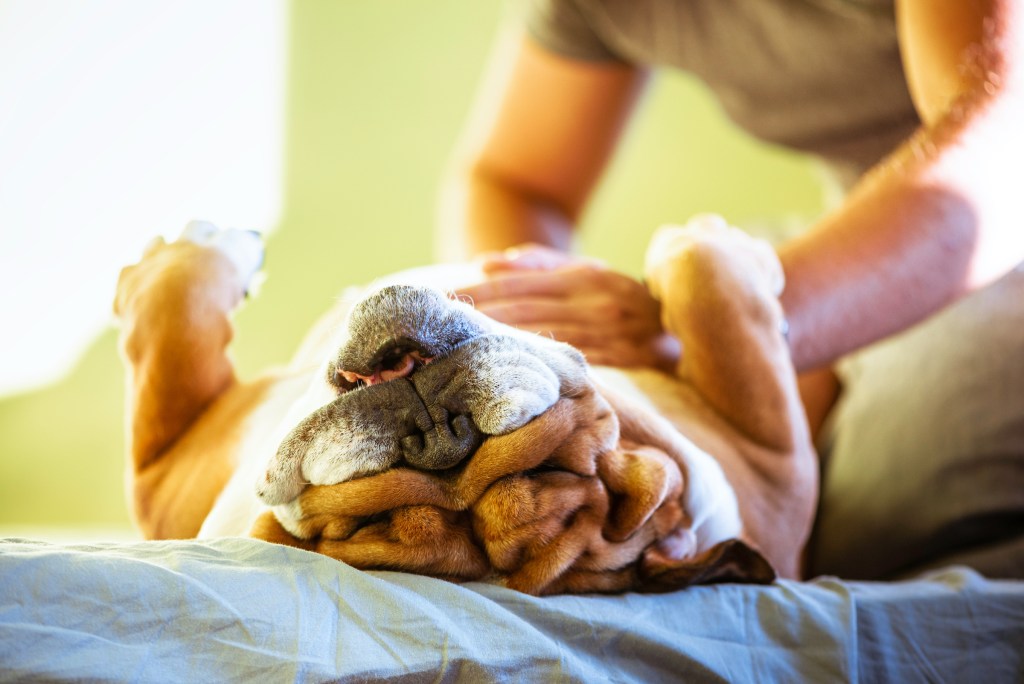
Are hiccups in dogs bad?
Most of the time, says veterinarian Elizabeth Racine, DVM, puppy hiccups are nothing to worry about. They can happen after your dog eats too quickly, barks a lot, or experiences heightened emotions, like stress or excitement. These are all completely normal.
Rarely, though, hiccups can persist because of a chronic health issue like a synchronous diaphragmatic flutter (SDF) or gastroesophageal reflux disease (GERD). Long-lasting bouts of hiccups should warrant a trip to the vet. Abdominal or respiratory tumors are even rarer causes of hiccups, notes Dr. Racine, so while they’re possible, don’t let them consume your thoughts.
A great way to distinguish hiccups from more serious problems is to examine your dog’s breathing behavior. Hiccups are often mistaken for coughing, choking, or reverse sneezing, notes veterinarian Addie Reinhard, DVM, so make sure to consult your vet if you’re unsure what your pup is experiencing.
Even if your dog has hiccups from a completely normal cause, we understand if you’d like to help your fur baby stop them. Watching their chest spasm can feel distressing even though you know your pup is safe, and hiccups can certainly distract from daily life, no matter when they occur.
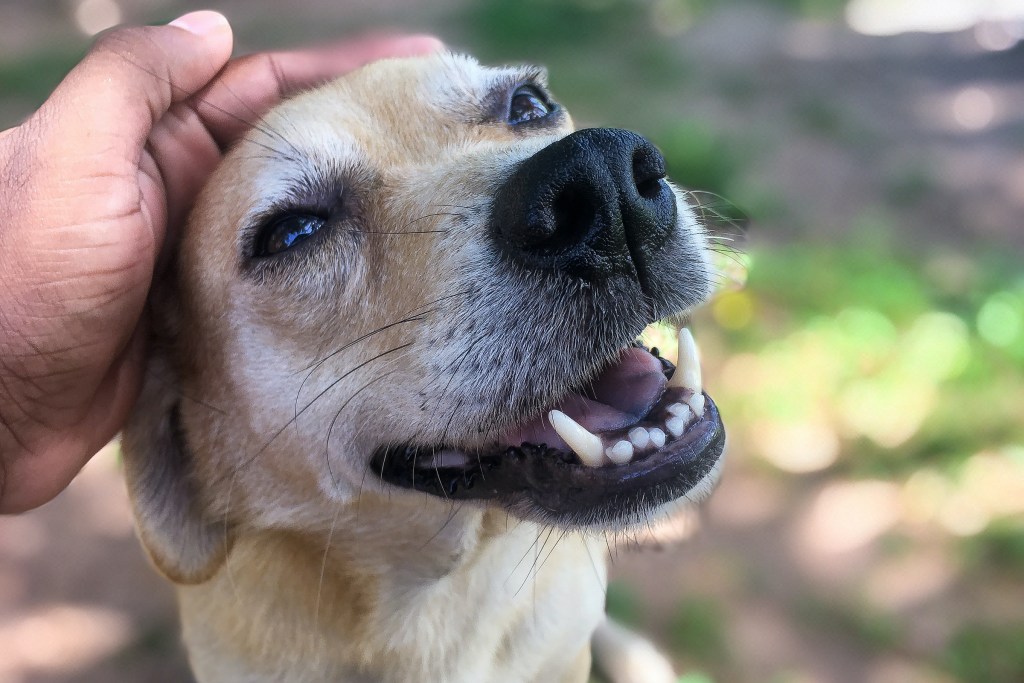
How do you get rid of dog hiccups?
Most of the time, you won’t have to do anything to get rid of puppy hiccups. They will subside on their own as the diaphragm relaxes, though there are a few things you can try to help the process move a little faster. Remember, as your puppy gets older, they will likely begin to grow out of their hiccup habit, at least somewhat.
The American Kennel Club recommends using a slow, relaxing belly rub as a way to calm your dog’s erratic breathing, while Dr. Addie Reinhard, DVM suggests a slow walk or a small drink of water. Though you can’t force the diaphragm to stop contracting, these activities may interrupt the hiccup cycle enough to stop them.
Dr. Racine highly recommends investing in some kind of slow-feeder or puzzle bowl for dogs who tend to eat too fast. Not only will these kinds of feeders force them to slow down their eating, therefore cutting down on their hiccups, but it will keep them mentally stimulated, too. She also notes that there are no medications currently approved to treat canine hiccups, so make sure not to give your pet any medicine to treat this annoying condition.
As irritating as hiccups in dogs can be, you can be at peace knowing they aren’t harmful. Your trusted veterinarian can also confirm this for you so you’ll know for the future, though your puppy may very well outgrow their tendency to hiccup. Small habit changes like slow eating and less excitement can also help, but you should know that none of these changes will happen overnight. They are effective at preventing hiccups, though, so there’s no reason not to give them a try.

